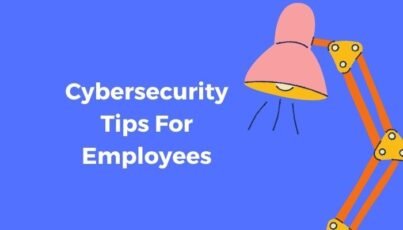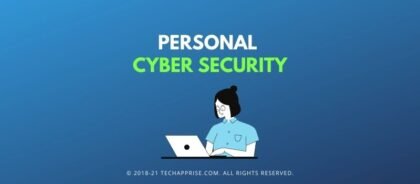If you’re interested in finding jobs and careers in cyber security, then this post is suitable for you.
Information security is defined as the type of security used to protect the privacy and data of users over the internet.
Hackers are the people who use tools such as Burpsuite to breach the system and steal things that are useful to them. Information security, which is designed to maintain the confidentiality, integrity, and availability of data, is a subset of Cybersecurity.
If you’re willing to become an ethical hacker, here are the 15 best websites to learn about ethical hacking.
In this guide on the jobs and careers in cyber security, we’ll discuss the following topics.
- A career in Cyber Security – Degrees, Certificates, Online Courses, and Skills.
- Jobs in Cybersecurity
Jobs and Careers Options in Cyber Security
Here I will tell you about all the courses for jobs and careers in Cyber Security that you should go for. The courses that I am going to take are job-oriented and will provide you with degrees and certificates as an authority.
I am also going to share what sets of skills are required and what benefits you will be getting while you are ready for a much-wanted career in cyber security.
Make the Right Choice of Cyber Security Course
Finding the right choice of program from the four available choices is the 1st step to beginning your career in cybersecurity. Make this decision wisely by taking individual proficiency and time that they can take out from their busy schedule.
- Bachelor’s
- Master’s
- Certificate
- Online
1. Bachelor’s Degree
If you are new to this field, want to start your career, and have time to join the full-time course in this field, then this program is for you.
If you are a regular reader and go through the news related to a major data breach of this company and want to work to make a difference as a cyber security analyst, then this is the best program to start with.
2. Master’s Degree
If you have ever worked or working in this field, expertise your knowledge while going through a master’s degree program. You can also go for a specialization course if you want to hone your skills in cryptography, and you can go through this program.
3. Online Courses
Due to your busy schedule, if you are not able to attend any degree program and want to build a career in cyber security then you can go for online courses that are free from any time-bound and can be done by taking out time from your flexible schedule.
It is the best alternative that is available for people who have no time to join the full-time program.
4. Certificate
If a person can drive some time from his/her busy schedule and move out to some Centre to learn about cyber security can go for the certificate program.
For example, I have a bachelor’s degree in cyber security and may eventually work on a master’s degree full-time. For now, I’d like to develop digital forensic skills by taking courses that I can apply to a master’s degree program later. Because of the frequency of cyberattacks, careers are varied, and qualified professionals are in demand.
If you’re ready to get started in this fast-growing career, start exploring cyber careers now.
Also read: How To Become a Bug Bounty Hunter
Jobs in Cyber Security Entry-Level
- SECURITY SPECIALIST – An entry-level role with huge potential.
- INCIDENT RESPONDER – Prevent and protect against threats.
- SECURITY ADMINISTRATOR – Keep security systems running smoothly every day.
- VULNERABILITY ASSESSOR – Spot system vulnerabilities and create solutions.
- CRYPTOGRAPHER – Write the code that hackers can’t crack.
- SECURITY MANAGER – Keep systems secure with help from an expert team.
- SECURITY ARCHITECT – Outsmart online criminals by designing tough-to-crack security systems.
- CHIEF INFORMATION SECURITY OFFICER – Expertise in computer security and business acumen will take you far as a CIS.
- SECURITY ANALYST – Plan and execute flawless security measures.
- SECURITY AUDITOR – Find the weak spots in a security system before criminals do.
- SECURITY DIRECTOR – Make the rules and solve complex problems.
- FORENSIC EXPERT – Protect the cyber world and assist law enforcement.
- PENETRATION TESTER – Hack and protect computer systems for good.
- SECURITY CONSULTANT – Advise and implement the security solution.
- SECURITY ENGINEER – Build IT security systems for your organization.
- SOURCE CODE AUDITOR – Ensure code accuracy and safety before release.
Job Growth and Future in Cyber Security
In cyber security, there is a huge demand for the job as there is a distinct deficit going on in the corporates. Professionals in the field of cyber security are much fewer than you think.
As reported in Cisco Systems, Inc., due to the result of this scarcity, many computer science workers, particularly those currently in the IT field, are eyeing employment in cyber security.
As the corporate sector is growing at a good pace, companies are looking for experts who have a good command of security and are experts in securing the system from any attacks.
Job growth from 2012 to 2022 for Information Security Analysts is anticipated to be 37 percent contrasted and 18 percent for all systems occupations and 11 percent for all occupations.
Also read: 25 Best Hacking Movies and Shows for 2022
Certifications in Cyber Security
It is important to know about certifications and their importance if you already work in the field of cyber security.
- CISM (Certified Information Security Manager)
Focused on governance, risk management, and compliance - CISA (Certified Information Systems Auditor)
Focuses on auditing, controlling, monitoring, and assessing information systems - CISSP (The Certified Information Systems Security Professional)
Important if you want to work in defense - GIAC (Global Information Assurance Certification)
Best for forensic and detecting purposes - CEH (Certified Ethical Hacker)
Certified you as an Ethical Hacker
All these certificates will add value to your current job and in the end, it will lead to growth in the field of cyber security.
Related: DDoS Attack Explained: Types, Detection, Mitigation
Skills Required for Jobs in Cyber Security
There are a number of skills that are required by the cyber person to fix his job and career in cyber security. There are various center aptitudes required by anybody entering the cyber security business, in the case of beginning his or her first expert activity or progressing from another PC-related field. Here are a couple of the key required aptitudes:
1. Communication Skills
As communication is a major part of managerial skills, and to find jobs and careers in cyber security it is necessary that the person has a strong command of oral and written communication. If you wish to join any job specialization you must have the ability to communicate clearly and concisely with clients and executives.
2. Programming Skills
Of course, you need to know about programming and scripts to design effective security programs and analyze cyber breaches and attacks. You cannot detect any cyber-attack without the knowledge of programming and hence cannot secure a job and career in cybersecurity. Here are the 9 easiest programming languages to learn in no time.
3. Risk Analysis and Management
Cybersecurity personnel must be able to assess a client’s particular security needs considering its organizational goals, which requires knowledge of risk analysis principles.
4. Understanding Network Protocols
You also need to understand what network protocols are, the types of network protocols, their similarities & differences, and how they work and are used.
5. Learning Security Principles
It is very basic to understand what principles that security follows. Security principles include privacy, confidentiality, authentication, and access control to make the system less affected by attacks and failure.
There are many other skills but these 5 are enough to secure a good job and a career in cyber security.







![Cyber Security: An Ultimate Guide [2021]](https://techapprise.com/wp-content/uploads/2018/05/work-from-home-quotes-10-min-420x184.jpg)


![DDoS Attack: Definition, Types, Prevention [2021]](https://techapprise.com/wp-content/uploads/2018/10/DDOS-ATTACK-IMG-1-409x230.png)

